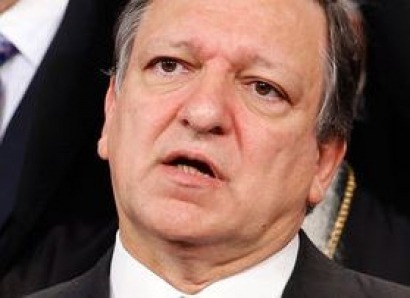
In a joint open letter to José Manuel Barroso, President of the European Commission, and Herman Van Rompuy, President of the European Council, the associations point to the current crisis in the Ukraine as only the latest example of Europe's vulnerability to volatile fossil fuel prices and geo-political risks.
They also stress the significant role they believe renewables can play as part of a new strategy for Europe's energy security and the importance to adopt ambitious 2030 renewable energy objectives.
"It is our belief that such a strategy, and surrounding debate, should not stop at diversification of supply routes and better cooperation and fuel storage, as these do not sustainably tackle Europe’s reliance on energy imports," the letter's signatories say.
"The EU’s strategy must, therefore, take into consideration the broad portfolio of renewable energy solutions, and in particular the rapid deployment of domestic renewable energies, the related integration technologies, not least infrastructure, and strong energy efficiency policies," they continue.
The organizations behind the letter -- The European Photovoltaic Association, European Biomass Association, European Renewable Energies Federation, Ocean Energy Europe, European Solar Thermal Industry Association, ESTELA, the Association of European Renewable Energy Research Centres, the European Wind Energy Association, and the European Small Hydro Association -- contend energy harness from the sun, the wind, ocean, hydropower, biomass and geothermal energy provide an immediate and durable solution to replacing fossil fuels in the residential, tertiary, and power sectors, as well as for industrial processes.
"This renewable combination can relieve Europe’s economic and political reliance on imports of gas, coal and oil in the most sustainable manner. According to the Commission’s own analysis, the EU’s dependence on energy imports comes at a significant cost: €545 billion in 2012," the organizations say.
. In 2010 alone, the groups say, the use of renewable energy avoided import fuel costs of €30 billion in the EU, especially in the electricity and heating sectors.
But, they contend, Europe can go much further.
"An ambitious and clear-sighted approach on the increased use of renewable sources is essential to shift Europe’s energy balance towards domestic, clean and abundant resources," the letter says.
"As stated in the European Commission’s Impact Assessment for the 2030 Climate and Energy Framework, a 30 percent renewable target would mean 26 percent less gas imports than today, and a higher target would mean even lower imports. The Commission’s proposed minimum share of 27 percent would reduce imports by just 9 percent," the associations say.
"What is more, ambitious objectives for renewable energy would significantly reduce Europe’s trade deficit, improve economic stability, boost employment and secure cost-effective energy supplies both in the short and long term," they continue.
"It is high time to remove the remaining barriers in Europe’s energy system to fully exploit this potential," they conclude.
For additional information:
The joint letter sent to José Manuel Barroso and Herman Van Rompuy

